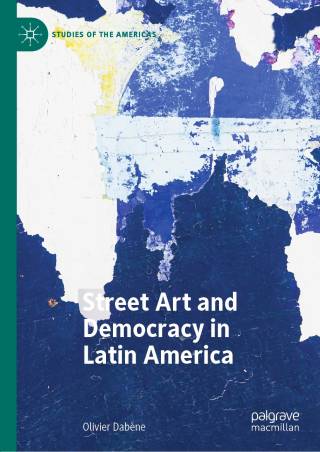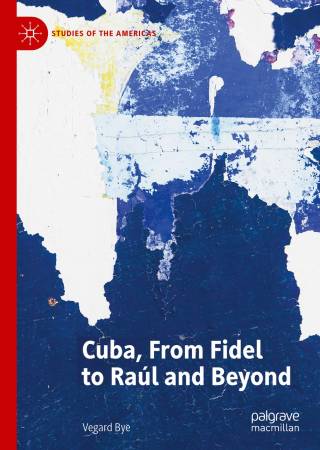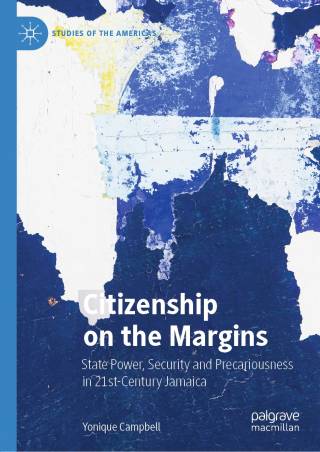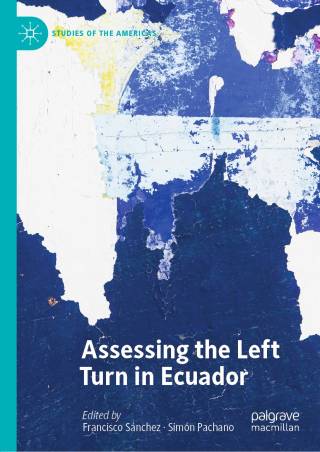We are delighted to announce the arrival of four new publications in the Studies of the Americas series.

Street Art and Democracy in Latin America
This book explores street art’s contributions to democracy in Latin America through a comparative study of five cities: Bogota (Colombia), São Paulo (Brazil), Valparaiso (Chile), Oaxaca (Mexico) and Havana (Cuba). The author argues that when artists invade public space for the sake of disseminating rage, claims or statements, they behave as urban citizens who try to raise public awareness, nurture public debates and hold authorities accountable. Street art also reveals how public space is governed. When local authorities try to contain, regulate or repress public space invasions, they can achieve their goals democratically if they dialogue with the artists and try to reach a consensus inspired by a conception of the city as a commons. Under specific conditions, the book argues, street level democracy and collaborative governance can overlap, prompting a democratization of democracy.Written by Olivier Dabène, Professor of Political Science at the Paris Institute of Political Studies (Sciences Po).
Cuba, From Fidel to Raúl and Beyond
This book analyzes the economic reforms and political adjustments that took place in Cuba during the era of Raúl Castro’s leadership and its immediate aftermath, the first year of his successor, Miguel Díaz-Canel. Faced with economic challenges and a political crisis of legitimacy now that the Castro brothers are no longer in power, the Cuban Revolution finds itself at another critical juncture, confronted with the loss of Latin American allies and a more hostile and implacable US administration.Written by Vegard Bye, Partner at Scanteam a.s., an Oslo-based consulting company.
Citizenship on the Margins
This book critically explores the impact of national security, violence and state power on citizenship rights and experiences in Latin America and the Caribbean. Drawing on cross-country analyses and fieldwork conducted in two “garrisons,” a middle-class community and among policy elites in Jamaica—where high levels of violence, in(security) and transnational organized crime are transforming state power —the author argues that dominant responses to security have wider implications for citizenship. The security practices of the state often result in criminalization, police abuse, violation of the rights of the urban poor and increased securitization of garrison spaces. As the tension between national security and citizenship increases, there is a centrality of the local as a site where citizenship is (re)defined, mediated, interpreted, performed and given meaning. While there is a dominant security discourse which focuses on state security, individuals at the local level articulate their own narratives which reflect lived-experiences and the particularities of socio-political milieu.Written by Yonique Campbell, Lecturer of Public Policy and Management in the Department of Government, University of the West Indies, Jamaica.
Assessing the Left Turn in Ecuador
This book examines the “left turn” in Latin American politics, specifically through the lens of Ecuador and the effects of the Citizens’ Revolution’s actions and public policies on relevant actors and institutions. Through a comprehensive analysis of one country’s turn to the left and the outcomes generated by that process, the authors and editors provide a clearer understanding of the ways in which the popular desire for change (predominant through the region in recent times, as a response to late-twentieth-century neoliberalism) was realized—or not. The particular case of Ecuador further potentiates analysis of the entire region-wide process, considering that the “corrector” cycle is now at an end, and that the economic and international conditions that favored the return of left governments have also changed.Written by Francisco Sánchez, Director of the Instituto de Iberoamérica and Associate Professor of Political Science, Universidad de Salamanca, Spain and Simón Pachano, Professor-Researcher of Political Science at FLACSO Ecuador, Ecuador.





 Close
Close

